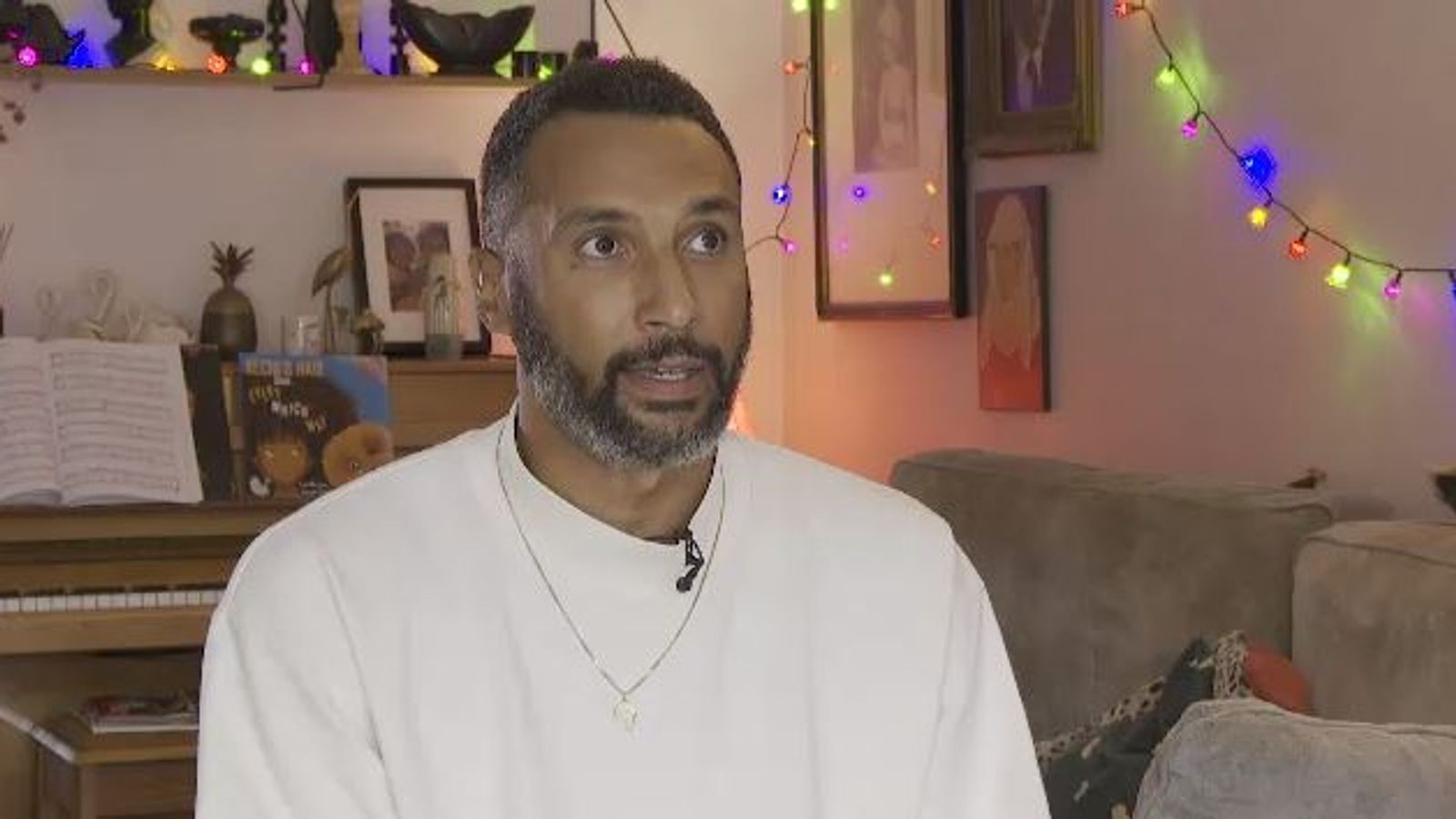Firefighter who tried to tackle racism in service doubts things can change for the better

A firefighter has described how he suffered racism in different forms in the service and also felt frustrated with bosses when he tried to help tackle the issue.
It comes as a damning independent report found that the London Fire Bridge (LFB) was “institutionally misogynist and racist”.
Fire chiefs have pledged to deal with the problem head on, but Gareth Dawes, who left the LFB in September after more than 20 years’ service, has questioned whether things can change for the better.
Speaking to Sky News, Mr Dawes said the “standout overt” case of racism to him happened when a serving firefighter directed an offensive term at him at a wedding, where the groom was also a fellow fireman.
Please use Chrome browser for a more accessible video player
1:22
‘Inexcusable behaviour’ in London Fire Brigade
He said: “There was an argument that occurred and I went in to split up the argument and I was called a black b*****d in that moment by a serving colleague from a different watch.”
Mr Dawes said he was disappointed that the “onus was put on me (by bosses) as to whether I wanted to do anything about it” back at the station.
He added: “It seems that you’re the only person as the victim who can decide whether anything should be done about it because you are the only one who has been affected by it, when it should have affected everyone.
“A disciplinary procedure should have taken place and that should have been led by management and decided by management and not decided by me.”
Mr Dawes said he later told the firefighter who used the derogatory term at the wedding that he was “upset” and “angry” about the offensive language and the person apologised.
Advertisement
He said his experience afterwards was more of an “oppressive nature”, with him “being forced out” because he was trying to bring in work that they (the LFB) “so desperately needed”.
Please use Chrome browser for a more accessible video player
2:30
LFB is ‘misogynist and racist’
When Mr Dawes offered to help tackle racism in the service, his bosses encouraged him, he said, but he added they simply didn’t understand the problem and he resigned.
‘It doesn’t necessarily have to be the N-word for it to be racism’
“They were just saying that it wasn’t racism, this isn’t racism. So that’s why I mapped it out. It doesn’t necessarily have to be like the N-word for it to be racism. But they just didn’t want to see it. They did not want to see how they were part of the problem. It was absolute denial. And it was much easier for them to see me as a troublemaker, and someone who’s too big for their boots.”
He said his experience of racism “ramped up” when he was in a team that was supposed to be delivering anti-racism work. He said they were looking into racism “but they couldn’t handle it”.
Mr Dawes said he was wanted to adapt an anti-racism programme, already successful in children’s services in London, into the fire service.
He said: “It needed to be understood from the top, and that’s where the blockages came from. (Management) believed it would just go straight to station level” and they saw him as a link with firefighters.
He said it was “incredibly frustrating” and “painful”.
“When I spoke about my experience and I detailed it out that what was happening to me and the team, nothing was done about it.”
Please use Chrome browser for a more accessible video player
0:46
‘Some of these stories were heartbreaking’
He said he felt the “constant pressure” of going into meetings and reliving the racism but was told “for his own well-being” that he should “go back to the station”.
After being urged to help sort out racism problems, the top brass were preventing him from doing that, he said.
“I absolutely believe that managers and senior leaders in the team stopped that from happening. It was that lack of ability to see how they fit into the picture.”
“It was very much a culture from headquarters as punching down and looking down and seeing firefighters as a specific kind of person. The amount of times that I was in headquarters when they’d say things to me like ‘you’re really articulate. You speak really well’.
“And I was like, ‘do you say this to white management?’ It was because I was a black man and I was a firefighter, so I wasn’t supposed to be able to talk the way that I was speaking to them.”
‘I believe that no change will come about’
When asked on Saturday about fire bosses’ pledges today to stamp out racism and misogyny, he said “unless they are willing to look at themselves and the parts that they play into it then I believe that no change will come about”.
“I sent an open letter. And I detailed what was happening. I detailed the pressure I was under within that team. I detailed the fact that I was told that the cultural change team are a team that aren’t ready to do inter-racing for the next couple of years.
“And I posed to them in that letter – I asked them if it’s okay for people to continue suffering whilst they become ready for it.
“So I want to know is what makes them ready now. What makes them all of a sudden ready to do think about it when a matter of weeks ago they said they weren’t. And that’s what I find troubling.”